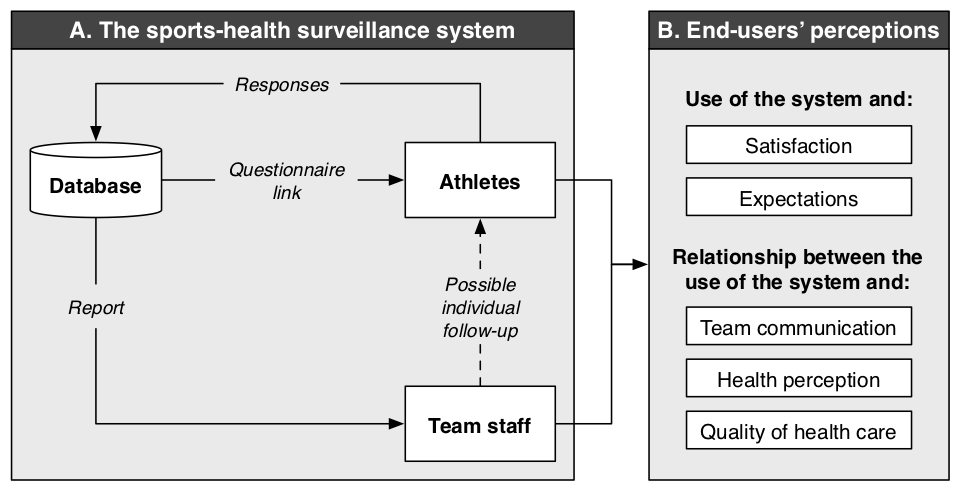Athletes can only perform at their best level when in full health. The library of evidence on this notion has increased considerably over the past decade and health monitoring of health athletes has gained a lot of ground recently. With contemporary technologies and methodologies we are now able to monitor athlete's health continuously, by which we are better equipped to protect their health and aid athletes to gain their performance goals. We wondered though, what are the acceptability and the perceptions of athletes and staff members (ie, end-users) towards such online sports-health surveillance systems. In our latest paper we sought an answer to this question.
We pursued a mixed-methods approach that charted the adherence of elite judo (n=34), swimming (n=21) and volleyball (n=14) athletes to an online registration of their sport exposure and health complaints between. End-users’ perceptions towards the system were investigated qualitatively with semistructured interviews (n=21). Qualitative analysis was based on the constant comparative method using principles of the grounded theory.
(A) The online sports-health surveillance system workflow (adapted from Clarsen et al). The workflow was completed every 2 weeks for judo and weekly for swimming and volleyball teams. (B) The interview coding framework to investigate end-users’ perceptions towards the system.
The response rates of judo, swimming and volleyball athletes were 50% (SD 23), 61% (SD 27) and 56% (SD 25), respectively. Most athletes found it simple to register their sport exposure and health complaints online; however, personal communication was still preferred for this purpose.
“We are in contact [with team staff] frequently. It is easier to communicate directly.”
The system facilitated the communication between medical and trainer staff, who were able to identify in the system reports health complaints from athletes that were not necessarily communicated face-to-face.
“The system improved the communication between medical and trainer staff.”
Therefore, staff members reported that they were able to intervene earlier to prevent minor health complaints from becoming severe health problems. However, staff members expected higher adherence of athletes to the online follow-ups, and athletes expected to receive feedback on their inputs to the system.
“With the system usage, I had more control over what happens with athletes, and I could intervene early when necessary.”
In conclusion, we can say that an electronic monitoring system can be used in sporting settings, complementary to regular strategies for monitoring athletes’ health. However, providing feedback on athletes’ inputs is important to maintain their adherence to such an online system.
The full article can be found here (open access)
Barboza SD, Bolling CS, Nauta J, et al. Acceptability and perceptions of end-users towards an online sports-health surveillance system. BMJ Open Sport Exerc Med 2017;3:e000275. doi:10.1136/bmjsem-2017- 000275


